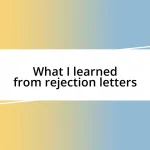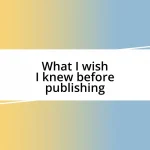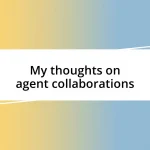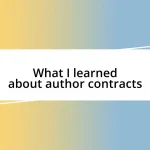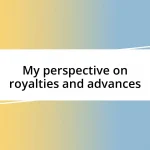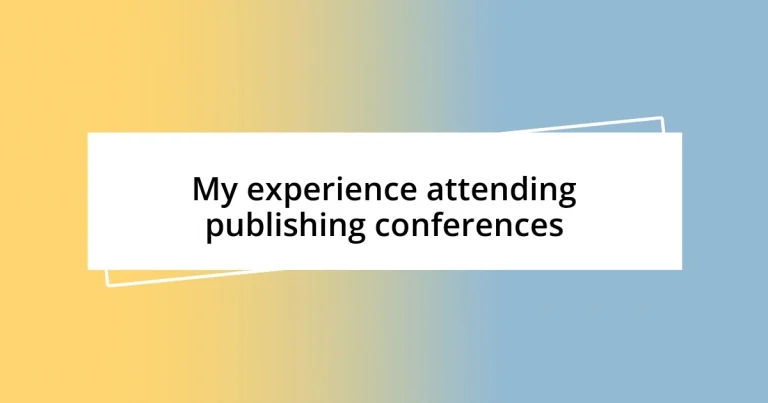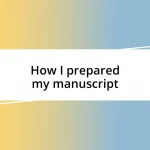Key takeaways:
- Networking at publishing conferences can lead to valuable collaborations and mentorship opportunities, enhancing career prospects.
- Effective preparation, including planning sessions and crafting an elevator pitch, can significantly enhance the conference experience.
- Post-conference follow-up, including maintaining connections through social media and organizing meetings, is essential for nurturing professional relationships and applying learned insights.
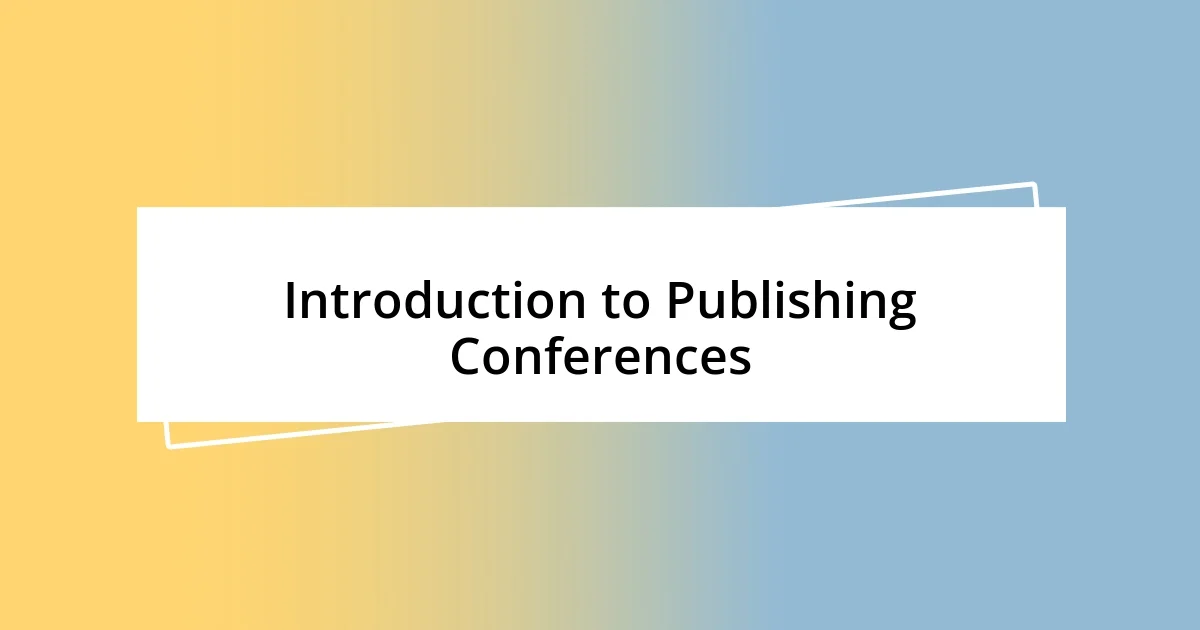
Introduction to Publishing Conferences
Attending publishing conferences can be a transformative experience for anyone in the industry. I remember my first conference vividly—the energy in the air was electrifying. It felt like a melting pot of ideas, stories, and opportunities just waiting to be explored. Isn’t it fascinating how these events can spark collaborations that might lead to the next big book?
What struck me most was the diversity of perspectives present at these conferences. Everyone from seasoned authors to aspiring writers and inky-fingered editors shared their journeys. I often found myself asking, “What can I learn from each of these individuals?” It was exhilarating to discover that each conversation held a nugget of wisdom or inspiration.
As I walked the aisles of booths and sessions, I was overwhelmed by the passion and creativity that flowed through the crowd. You could almost feel the collective pulse of excitement. It’s a reminder of how vital these gatherings are in fostering connections and igniting new ideas. Have you ever felt that rush while mingling in a sea of like-minded individuals? It’s truly a unique atmosphere that keeps you coming back for more.
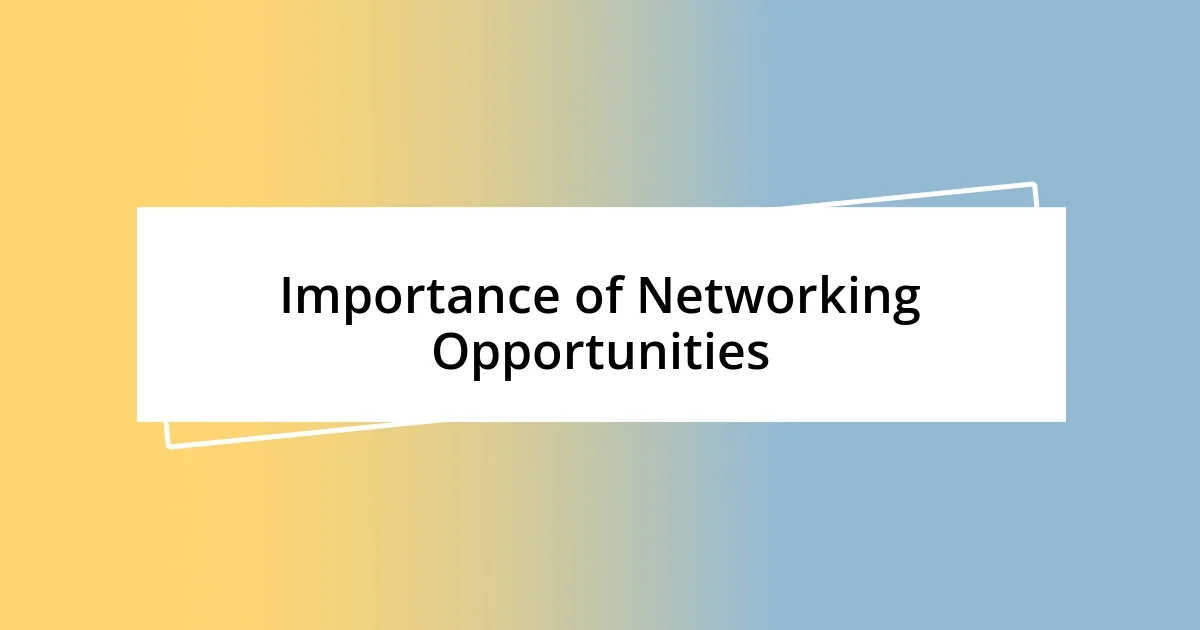
Importance of Networking Opportunities
The power of networking at publishing conferences can’t be overstated. I distinctly remember my first encounter with an established editor who shared invaluable insights about the current market trends. That single conversation shaped my understanding of the industry and opened doors that I had no idea existed. Suddenly, I was part of a community where relationships flourished, and resources were shared freely.
In my experience, the blend of different backgrounds at these events creates unique opportunities for collaboration. I found myself seated next to a fellow author during one workshop, and we ended up brainstorming ideas for a co-authored project. Who knew that a casual chat could lead to such an exciting venture? It’s those spontaneous moments that make networking feel organic and rewarding.
Furthermore, attending sessions designed for networking can expose you to potential mentors or collaborators who resonate with your goals. I recall attending a roundtable discussion where I met a literary agent looking for fresh voices in fiction. I learned the importance of preparation and confidence when seizing such moments. With each interaction, I realized that growing your network means nurturing connections that can ultimately change your career trajectory.
| Advantages of Networking | Examples from My Experience |
|---|---|
| Collaboration Opportunities | Brainstorming a project with a fellow author |
| Access to Industry Insights | Conversation with an editor about market trends |
| Mentorship Possibilities | Connecting with a literary agent seeking new authors |
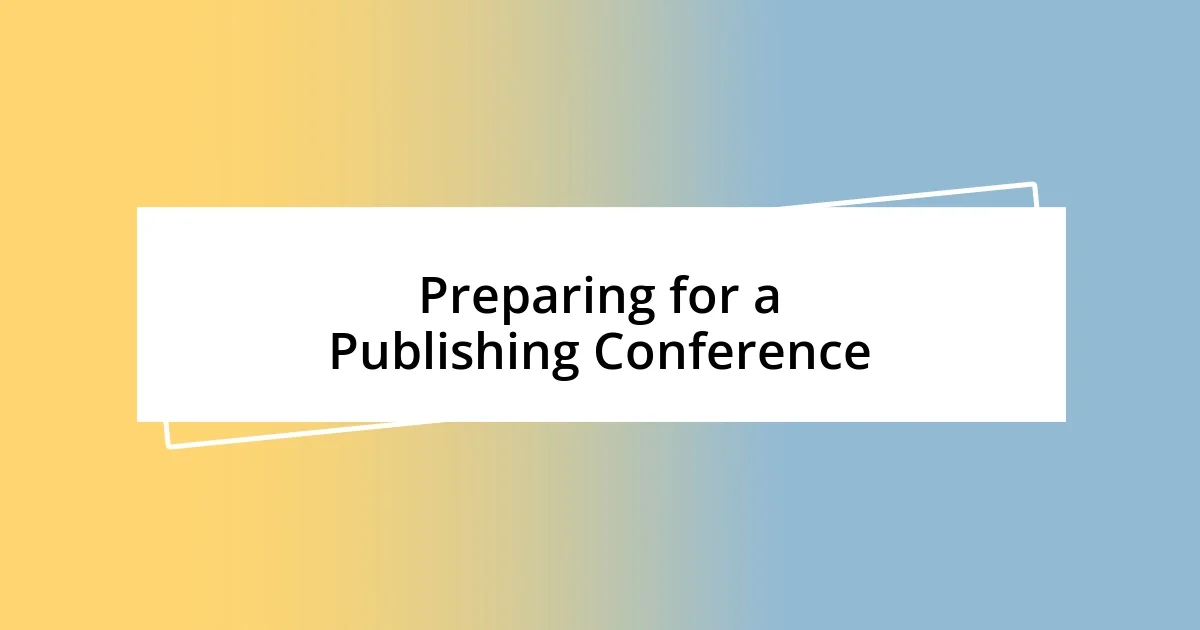
Preparing for a Publishing Conference
Preparing for a publishing conference requires thoughtful planning. I’ve learned that starting early can make all the difference. A couple of days before my first event, I laid out a strategy: what sessions to attend, which speakers sparked my interest, and who I wanted to connect with. This foresight eased my nerves and allowed me to focus on soaking up the experience rather than scrambling at the last moment.
Here’s a quick list of tips to help you prepare effectively:
- Finalize your schedule: Choose sessions that align with your goals, whether it’s for learning or networking.
- Bring business cards: These handy tools led to several fruitful conversations for me.
- Dress comfortably: You’ll be on your feet a lot, and looking good should feel good too!
- Research attendees and speakers: Knowing their work can spark conversations instead of fumbling for topics.
- Prepare an elevator pitch: A concise summary of who you are can leave a lasting impression on potential contacts.
I remember feeling a rush of excitement as I ticked off each item on my list—you could say I was practically buzzing with anticipation.
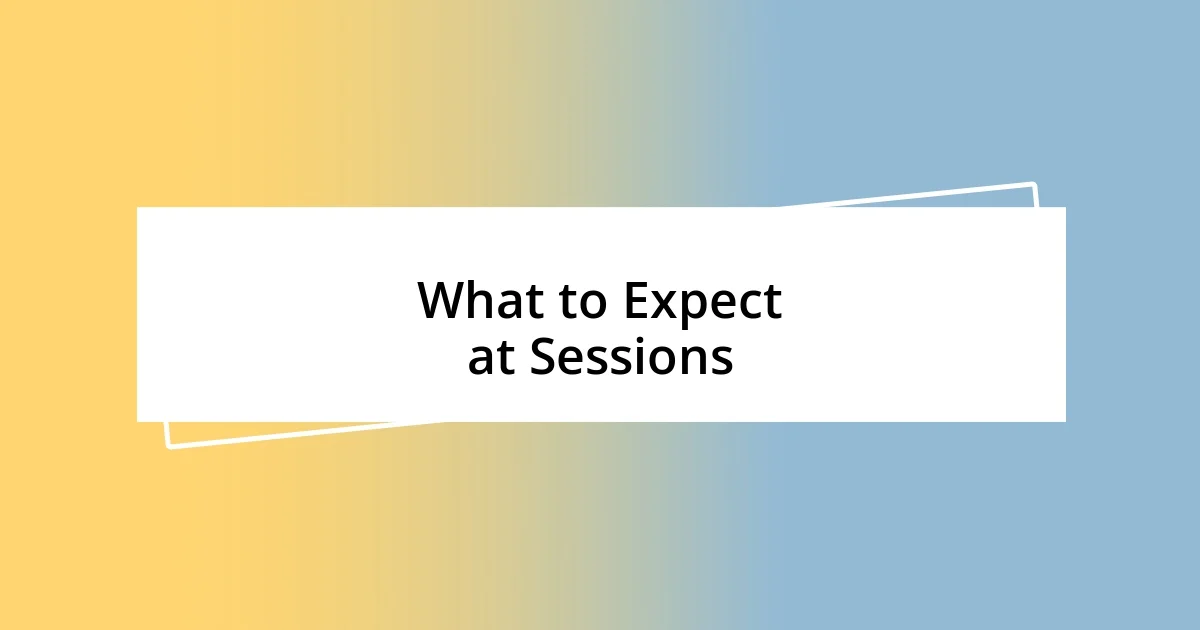
What to Expect at Sessions
Attending sessions at publishing conferences is like diving into a well of knowledge and inspiration. I still recall the moment I sat in on a session about digital marketing in publishing. The speaker shared real-life case studies that not only opened my eyes to new strategies but also made me question my approach. They directed a thought-provoking question to us: “What if your next book could be your big break with just the right marketing strategy?” I left the session with a fire in my belly, eager to apply what I learned.
Each session you attend is an opportunity to engage with a rich tapestry of ideas. During a panel discussion, I listened to a diverse group of authors share their experiences navigating the publishing landscape. It was refreshing to hear their struggles and triumphs, and it struck me how much we all have in common—even if our paths differ. It felt less like a lecture and more like a conversation among friends, igniting a sense of camaraderie that I wasn’t expecting.
Expect the unexpected when it comes to audience participation. In one session, the moderator invited us to share our own experiences related to the topic at hand. I hesitated for a moment, but then I raised my hand. That simple act led to an insightful discussion that not only validated my feelings but also created connections with others who shared similar challenges. I realized then that being vulnerable in such settings can foster deeper relationships—after all, we’re all there for a common reason: to learn and grow together.
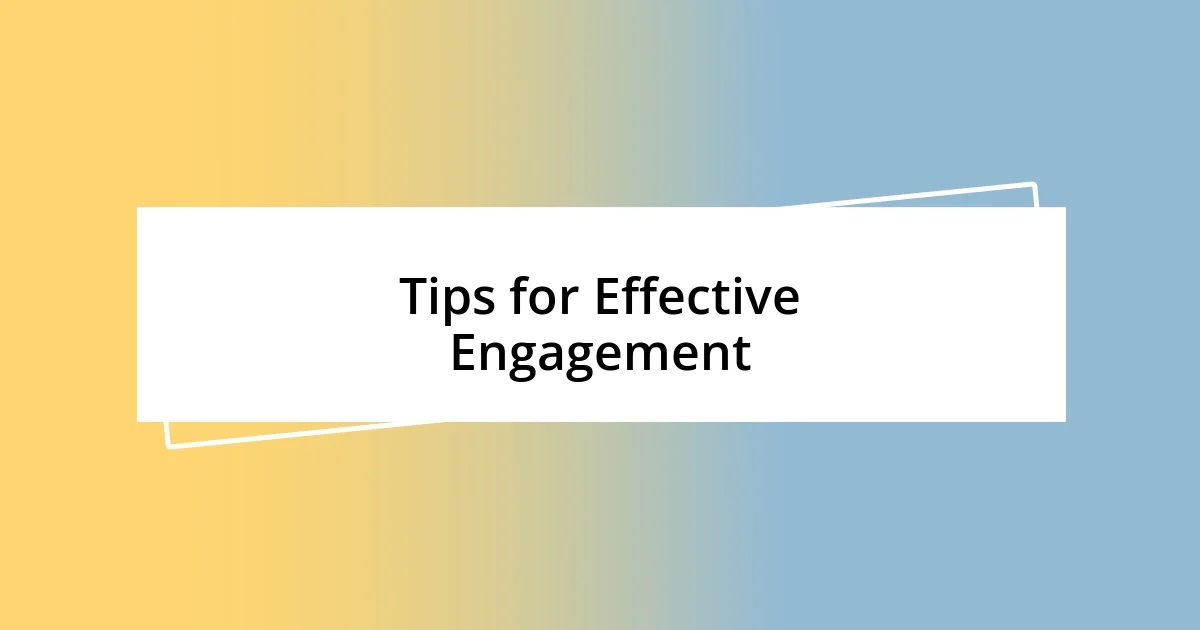
Tips for Effective Engagement
Engaging effectively at a publishing conference is about more than just attending sessions; it’s about making real connections. When I walked into my first networking event, I focused on eye contact and listening intently. Have you ever noticed how a genuine smile can disarm even the most intimidating strangers? I found that those small gestures opened doors and led to conversations that felt authentic and meaningful.
Taking notes during sessions is another strategy I swear by. I remember once jotting down a particularly interesting quote that resonated with me, and later, I used it to break the ice with someone after the session ended. “What did you think about that quote?” I asked, and suddenly we were deep in conversation. It’s amazing how the simplest things—a line from a talk or a shared curiosity—can spark connections that lead to new friendships or collaborations.
Participating actively is crucial too. I often challenge myself to ask at least one question during a session. This habit not only boosts my confidence but also helps me stand out. In one instance, I asked a speaker about their experience with self-publishing, and the discussion that followed turned into a mini-workshop with others chiming in. Those moments of interaction fuel the energy in the room and create a sense of community. How often do we get to share our thoughts in such an open and engaging environment? It’s these experiences that can truly enrich our conference journey.
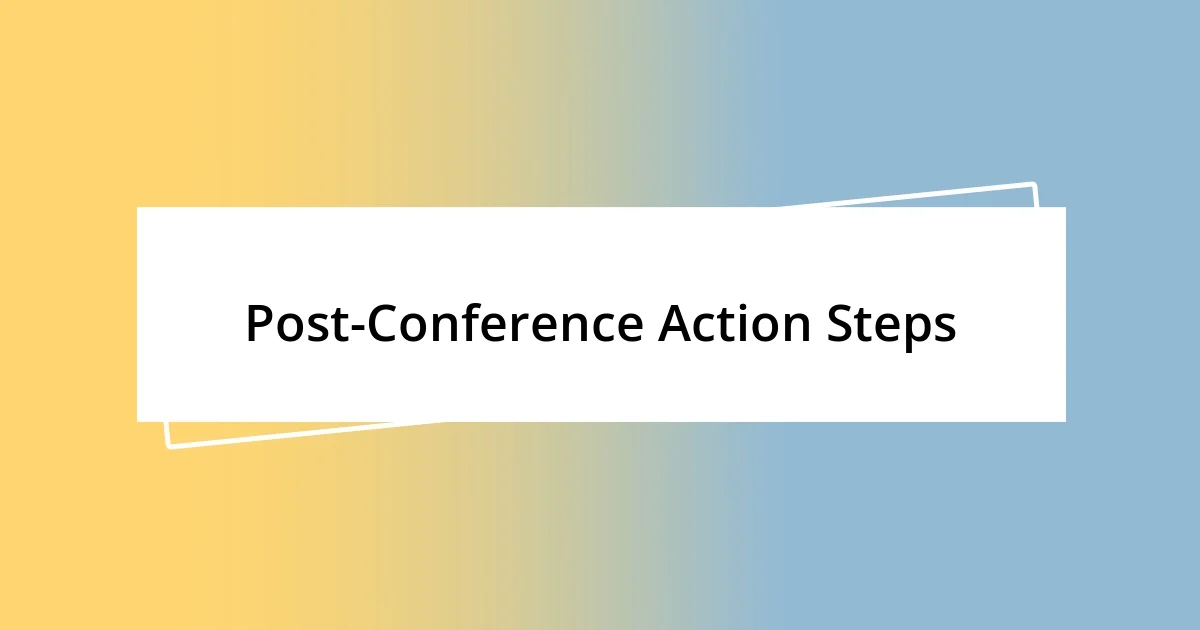
Post-Conference Action Steps
After a conference, I always find it vital to follow up with the connections I made. I remember a particularly engaging conversation with an editor I met during a lunch break. We exchanged contact details, and I took the initiative to send her a quick email the next day, highlighting our discussion about manuscript submissions. It felt rewarding to see that our brief connection flourished into a professional rapport. Have you ever wondered how a simple message can keep the momentum of a good conversation alive?
Another important step is to revisit the notes I took during the sessions. Often, I reread these notes while reflecting on what resonated with me and how I can implement those insights in my work. One session had a speaker who discussed the importance of having a digital presence, which prompted me to evaluate my own online strategies. Recently, I decided to revamp my social media platforms based on that inspiration. How do you usually apply what you learn in such vibrant environments?
Lastly, self-assessment plays a crucial role in my post-conference routine. I set aside some quiet time to think about what went well and what could have been improved from my experience. Last time, while recalling some missed networking opportunities, I felt a pang of regret but also a motivation to be more proactive next time. This reflection not only leads to personal growth but also transforms how I approach future events. What lessons have you taken away that shaped your perspective?
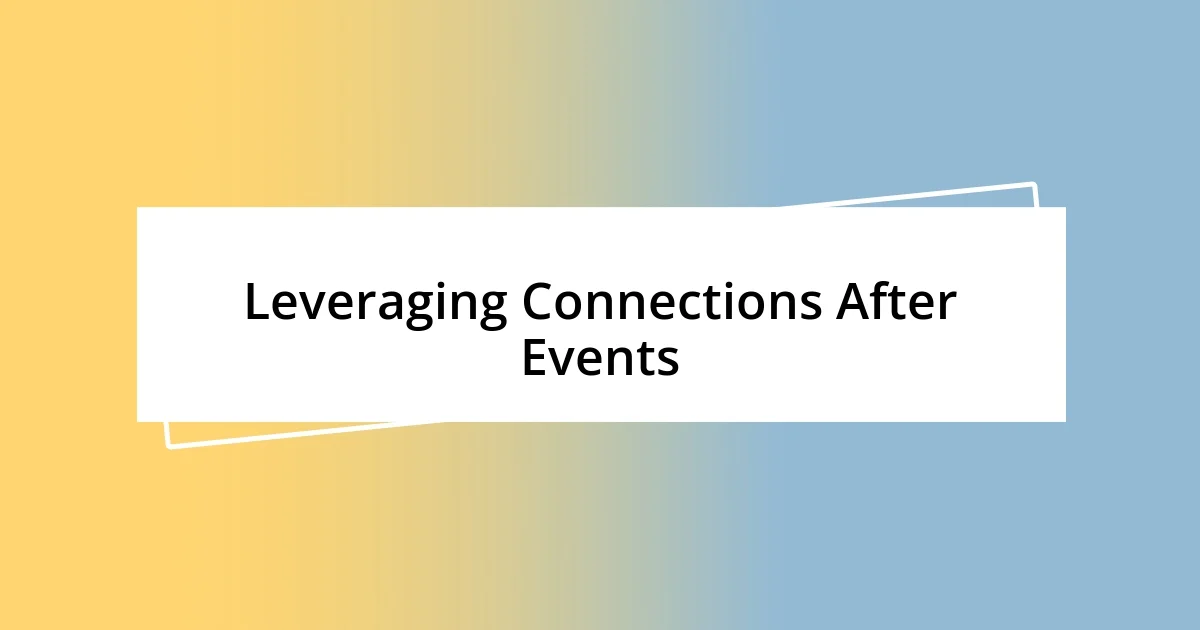
Leveraging Connections After Events
After the buzz of a conference quiets down, I find myself reflecting on the connections I made. For instance, I once met a fellow writer who shared my passion for historical fiction. When I reached out a week later to discuss our favorite books in the genre, I was thrilled to discover that she was open to collaborating on a project. Have you ever felt that excitement when a conversation turns into an opportunity? It’s moments like these that remind me how important it is to nurture those post-event interactions.
I also believe in the power of social media to maintain those connections. After my last conference, I made it a point to follow attendees on platforms like LinkedIn and Twitter. I share interesting articles related to our discussions and comment on their posts whenever I can. It’s a simple way to stay relevant in their minds. Are you active on these platforms after you meet someone? I find that a quick comment or share can go a long way in keeping the connection alive.
Finally, I have a habit of organizing coffee chats or virtual meet-ups. There’s something special about transitioning from a brief conference encounter to a more in-depth conversation. The connection feels more solidified when you move beyond emails. Recently, I set up a Zoom call with a publisher I met, and we brainstormed ideas for an article I was working on. Have you ever experienced that shift from casual acquaintance to trusted colleague? It’s those deeper relationships that can truly enrich our professional lives.




